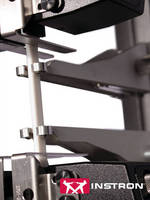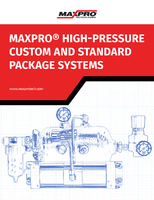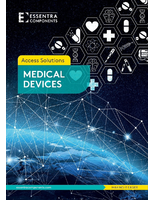Automatic Contacting Extensometer enhances materials testing.
Press Release Summary:

Meeting ISO 9513, ASTM E83, and ISO 527-1 (2011) requirements, AutoX750 is used to determine such calculations as modulus, offset yield, and plastic (non-proportional) elongation to failure during materials testing routines. Accuracy and travel make this product suited for tensile and flexure testing of various materials, including composites, metals, and plastics. Such features as automatic gauge length positioning and attachment to test specimen further lend to productivity.
Original Press Release:
Automatic Contacting Extensometer
Instron®, a leading provider of testing equipment solutions designed to evaluate mechanical properties of materials and components, introduces the AutoX750 Automatic Contacting Extensometer that offers faster, more reliable and more accurate materials testing routines. Its high accuracy and travel make it an ideal extensometer for tensile and flexure testing of various materials including composites, metals, and plastics.
Meeting the requirements of ISO 9513, ASTM E83, and ISO 527-1 (2011), the AutoX is used to determine a variety of calculations including modulus, offset yield, and plastic (non-proportional) elongation to failure. It enhances the productivity of testing laboratories with features including automatic gauge length positioning and attachment to the test specimen. By removing the manual, tedious and time-consuming steps, lab operators can enjoy a simplified testing routine while improving throughput. Additionally, by reducing inconsistencies in how a traditional clip-on extensometer is attached greatly improves the repeatability and reproducibility of critical test results.
The AutoX can also be used with either fully-automated or manual testing systems. When not in use, the mounting allows operators to quickly and safely position the extensometer out of the test area providing a safe storage environment for the device. Removing the AutoX from the test area allows operators to easily switch out grips and fixtures without the additional step of uninstalling the device.
Some features that are patent-pending:
- The extensometer arms: both arms opening/closing simultaneously via a common bar that rotates with just one motor protecting the extensometer, making the arms lighter, and making the friction low and consistent.
- The debris shield: designed to cover the gap in unused areas, minimizing the amount of dirt/debris that can get inside the instrument.
- The tensioner: with an ergonomic design, an operator can use a reference label to read and mark what position the tensioner was in during a test. This allows for accurate & repeatable tension for each test.
About Instron®
Instron is a leading provider of test equipment for the material and structural testing markets. A global company providing single-source convenience, Instron manufactures and services products used to test the mechanical properties and performances of various materials, components and structures in a wide array of environments.
Instron systems evaluate materials ranging from the most fragile filament to advanced high-strength alloys, providing customers with comprehensive solutions for all their research, quality and service-life testing requirements. Additionally, Instron offers a broad range of service capabilities, including assistance with laboratory management, calibration expertise and customer training.
For more information, contact Instron, 825 University Ave, Norwood, MA 02062, USA. Toll-free: 1-800-564-8378; Fax: 1-781-575-5725; Email: info_news@instron.com or visit our website at www.instron.com.




